International Confucius Institute Day Celebrated in Banja Luka
- Miroslav Malinovic
- Sep 22, 2018
- 3 min read
Updated: Oct 30, 2018
International Confucius Institute Day was celebrated on 22 September 2018 in Banja Luka.
The Confucius Institute organized interactive and educational workshops for children and adults downtown in the park Petar Kocic, who had the opportunity to take part in and learn more about the culture and customs of PR China.
Children enjoyed learning some basics of Chinese language, drawing Chinese characters, making and coloring traditional Chinese masks and they had much fun while participating in many other interesting activities prepared for them.
They also saw the play “Welcome to China” performed by the actors of the Children’s Theatre of the Republic of Srpska, which gladly supported our event, in which they demonstrated the everyday life in China in a very amusing and interesting way, which the kids particularly liked.
Our Chinese Director Cai Ying performed the incense ceremony, explaining all the benefits it has on human health and how it may prevent and cure many diseases.
She said that in ancient China well-educated people very much appreciated certain skills such as incense ceremony, tea ceremony, painting, calligraphy, playing on the traditional Chinese instrument Guqin (which was presented by her to the public in Banja Luka at the World Music Day this year), etc.
The use of incense (Chinese: 香; pinyin: xiāng) dates back to Neolithic times, and gains greater prominence during the Xia, Shang, and Zhou dynasties.
Citizens also had the opportunity to enjoy many other Chinese culture elements such as the martial arts Kung Fu and Tai Chi.
In the evening, the International Confucius Institute Day was officially celebrated in Banski dvor Cultural Center. Citizens were delighted with the program performed by our students of Chinese language course, who showed what they had learnt in the past couple of months, and by our guests from the Confucius Institute at University of Novi Sad.
They were introduced with many different elements of Chinese culture and tradition such as tea ceremony, traditional Chinese dance, martial arts of Kung Fu and Tai Chi, famous Chinese opera, Chinese fashion show, and popular Chinese songs.
Kids from the Montessori kindergarten, who have been learning Chinese organized by the Confucius Institute since May this year, sang the song „When You Are Happy“ in Chinese and were awarded with a big applause.
In Chinese culture, singing and dancing play a big role in both the everyday life and at formal occasions. Three students of Banja Luka Grammar School, who are also students of Chinese language course offered by our Confucius Institute, showed what a traditional Chinese dance looks like.
Chinese opera is very popular, and it consists of the elements of drama, music and theatre. It is specific for China and originates from songs and dances of ancient people from the territory of China. It differs from the Western opera. Beijing Opera is one of the most popular Chinese operas, including the Yue opera, as well as the famous ballade titled “Sister Lin Has Fallen from the Sky“, which was performed by a Chinese language course student together with her professor.
China is well-known for its teas and just as it is normal to drink coffee at a certain period of time in our country, so it is normal to drink tea in China. Tea culture or tea ceremony was performed by our distinguished guests from the Confucius Institute of Novi Sad.
A talented student of the Chinese language course demonstrated the martial art of Kung Fu.
Kung Fu is more than 5 000 years old. It connects the physical and spiritual part of humans. In China, Kung Fu actually includes all martial art techniques and could be referred to as a „skill mastered with hard work and discipline “
The celebration finished with Chinese fashion show of beautiful and colorful dresses, which high-class people in ancient China used to wear.
Over 500 Confucius Institutes in more than 140 countries worldwide celebrate this day during September every year by organizing public events in which Chinese language, culture and tradition is shared with the citizens of local communities in which they operate. This was the first time such an event was organized in Banja Luka.




















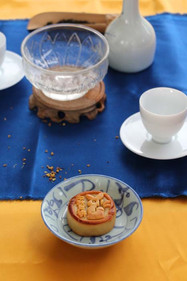





















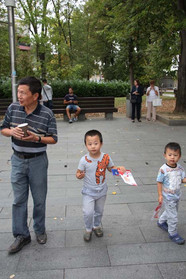













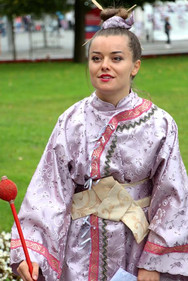





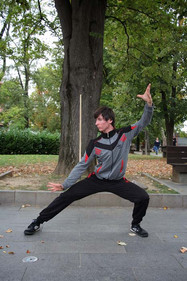









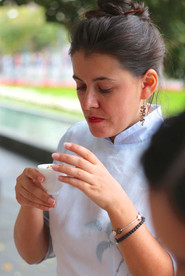



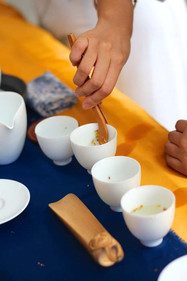

























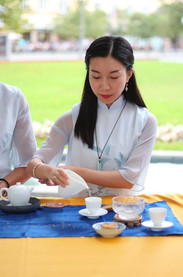































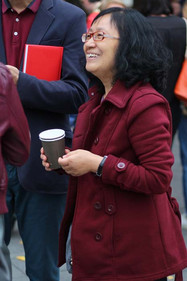







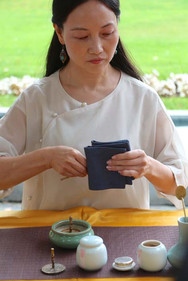





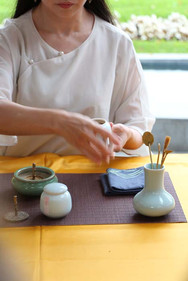

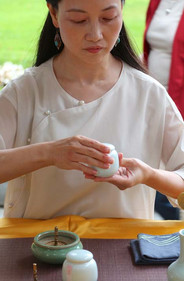











































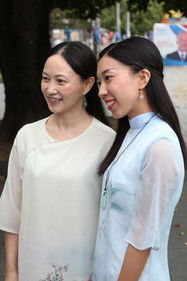

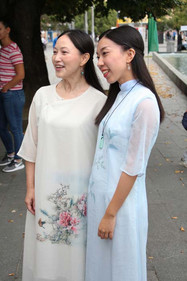













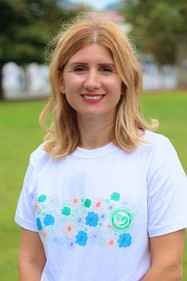





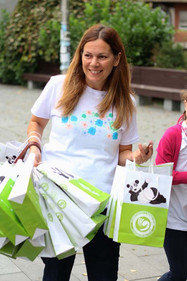























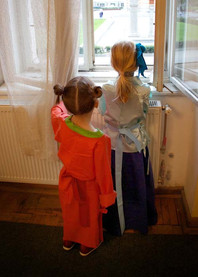









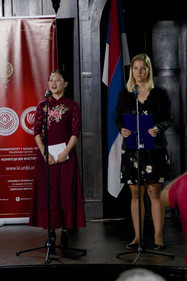

















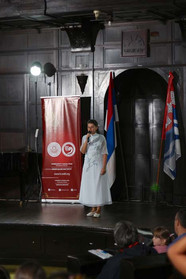











































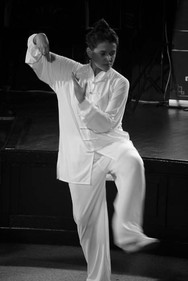







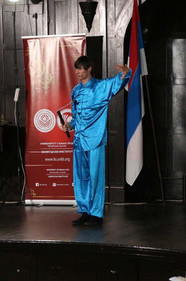











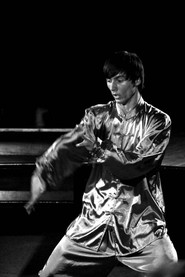



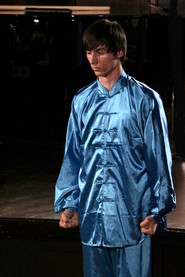

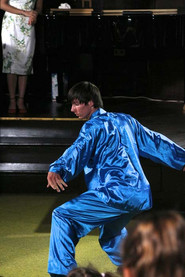















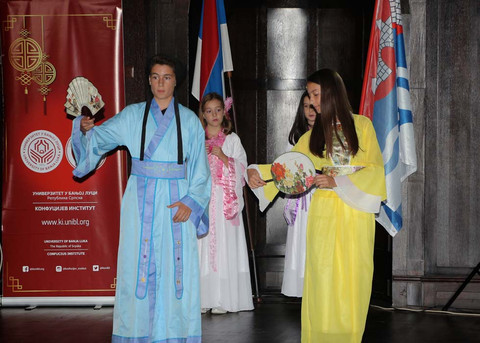











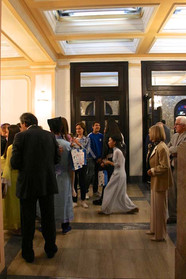







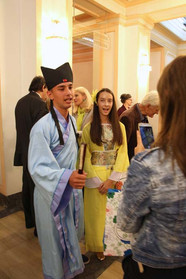

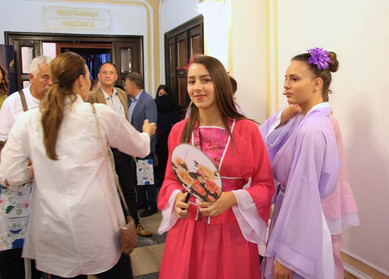



















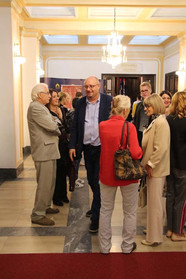













Kommentare